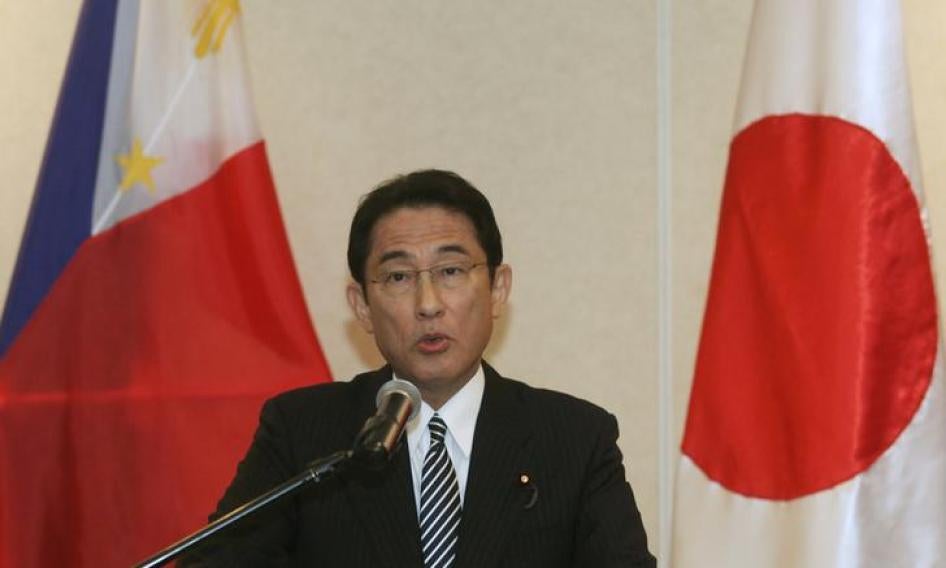(Tokyo) – The Japanese government should not fund any Philippine government drug rehabilitation services that fall short of international standards, Human Rights Watch said in a letter to Japan’s Foreign Minister Fumio Kishida and President Shinichi Kitaoka of Japan International Cooperation Agency (JICA). JICA, which funds overseas development initiatives, agreed in April 2017 to provide the Philippine Health Department with US$17 million for “upgrading of [drug] rehabilitation centers and enhancement of treatment protocols for drug dependents.”
“The Japanese government should not support potentially abusive approaches to drug rehabilitation in the Philippines,” said Kanae Doi, Japan director at Human Rights Watch. “JICA should disclose precisely what kind of drug rehabilitation services it is funding and the safeguards it has imposed to ensure that Japan isn’t supporting services or facilities that are violating the human rights of people seeking drug treatment.”
The Philippines desperately needs voluntary, community-based drug dependence treatment services that comport with international standards and human rights principles. However, neither JICA nor the Health Department have provided any details about how the Philippine government will spend those funds. Prime Minister Shinzo Abe’s offer of “meaningful assistance measures to address the issue of illegal drugs” in the Philippines is questionable given the serious human rights violations linked to Philippine President Rodrigo Duterte’s “war on drugs.” Since Duterte took office in June 2016, police and unidentified gunmen have killed more than 7,000 suspected drug users and drug dealers.







